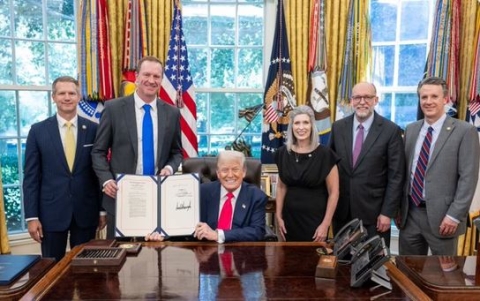


“UPDATE: President Trump has officially signed the first ‘rescissions’ bill into law. Taxpayer funding for NPR and PBS has officially been clawed back,” the White House announced Thursday.
By signing the H.R. 4 defunding bill, which was passed by Congress on July 18, Pres. Trump saved taxpayers $9.0 billion that they had been on the hook for – including more than $1 billion authorized for public media.
The billion dollars appropriated to the Corporation for Public Broadcasting, which funnels taxpayer money to National Public Radio (NPR) and the Public Broadcasting System (PBS), had not yet been spent, which enabled the president and Congress to rescind it.
Media Research Center (MRC) President David Bozell applauded Pres. Trump for signing the bill:
"Thank you President Trump for fulfilling another promise to the American people! We are sick and tired of paying for liberal media propaganda. I'd like to be the first to welcome PBS and NPR to competing in the free market."
MRC’s CNSNews and NewsBusters, along with Congressional Republicans, have extensively documented public media’s legacy of liberal bias and propaganda. But, NPR and PBS were defunded not only because they constantly violate their responsibility to provide fair and balanced reporting, but also because they have been rendered unnecessary by the plethora of alternative news sources available to Americans today, even in rural areas.
And, as was the case during the recent devastating, deadly floods in Texas, private media have demonstrated that they can provide more timely and comprehensive reports of vital news to residents in local areas.
Through what’s known as the “rescission” process, a president sends a request to Congress asking that money previously authorized to be spent, but that has not yet been spent, be unauthorized. If a defunding bill is passed by both chambers of Congress within 45 days, it is then sent back to the president to be signed.
